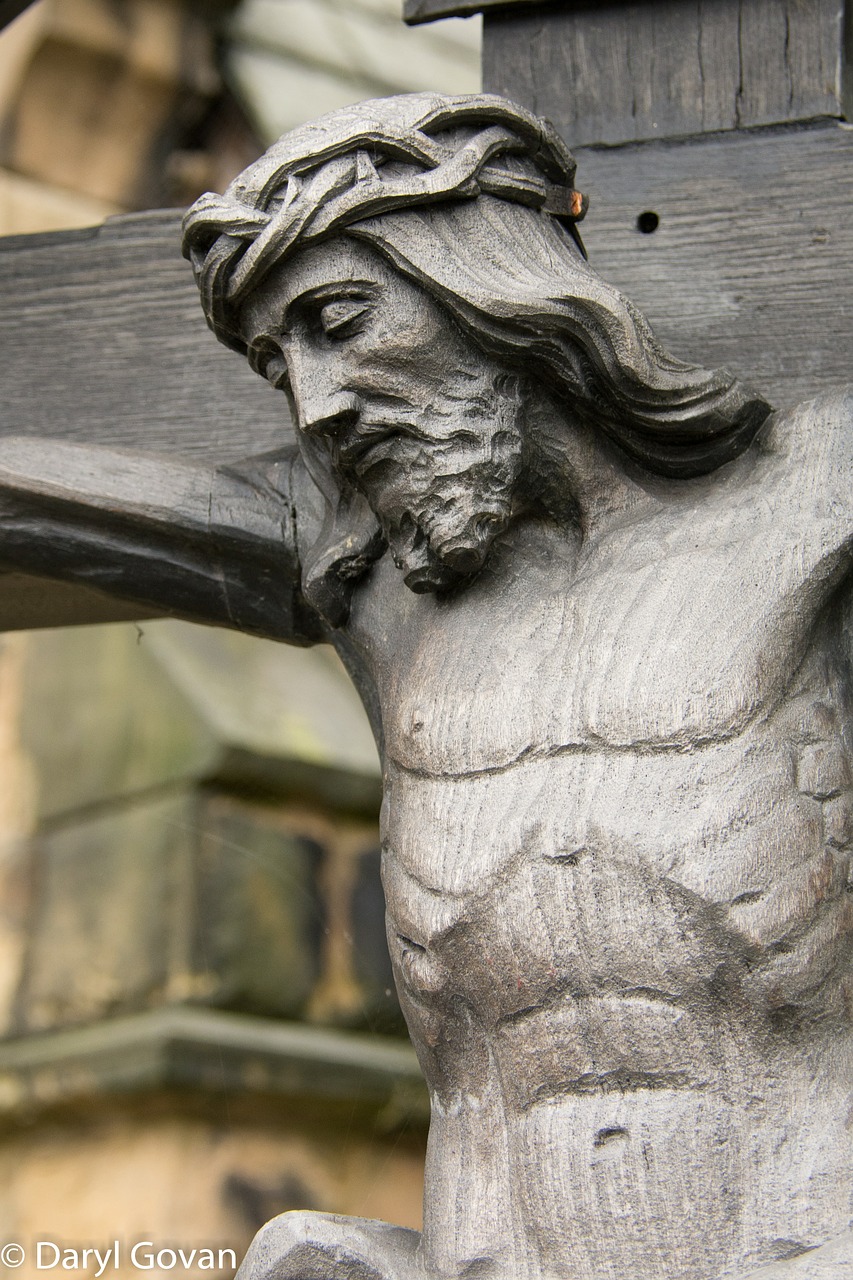 Reading the news this week, we were sadly reminded of a dangerous tendency among Christians. According to the late Jesuit theologian Jacques Dupuis, SJ, Christians often draw comparisons between what is best in their tradition and the worst in other traditions. At a recent New Hampshire town hall meeting, someone stood and said that, “we have a problem in this country, it’s called Muslims. We know our current president is one, you know he’s not even American.” Many politicians are condemning Donald Trump for letting this comment slide, and not coming to Barack Obama’s defense. After all, President Obama is a Christian. However, the issue goes deeper than what religion President Obama professes. Why is being called a Muslim considered an accusation or an insult, and why is being a Christian considered the proper response to such an “accusation?”
Reading the news this week, we were sadly reminded of a dangerous tendency among Christians. According to the late Jesuit theologian Jacques Dupuis, SJ, Christians often draw comparisons between what is best in their tradition and the worst in other traditions. At a recent New Hampshire town hall meeting, someone stood and said that, “we have a problem in this country, it’s called Muslims. We know our current president is one, you know he’s not even American.” Many politicians are condemning Donald Trump for letting this comment slide, and not coming to Barack Obama’s defense. After all, President Obama is a Christian. However, the issue goes deeper than what religion President Obama professes. Why is being called a Muslim considered an accusation or an insult, and why is being a Christian considered the proper response to such an “accusation?”
For those of us who are Christian, we need to ask ourselves, “What does it mean to be a Christian?” Am I Christian because I was baptized? Am I Christian because I go to mass on Sunday? Am I Christian because I stand up and profess certain doctrines? Am I a Christian because that is what my parents raised me to be? Am I Christian because that is “safer” in the United States than being a Muslim or a Hindu or an atheist (according to a 2012 Gallup poll, 43% of Americans would refuse to vote for an atheist for president; 40% would not vote for a Muslim)?
While I am not discounting the importance of the sacraments and doctrines of Christianity, Christianity is not a passive assent to creeds and attendance at rituals. It is a lifestyle. As the late Dominican theologian Edward Schillebeeckx defines it, Christianity is the decision to make Jesus Christ the center of one’s life. Jesus tells us, “By this everyone will know you are my disciples, if you love one another (John 13:35).” We cannot just say we are Christians, we have to BE Christians each and every day, not just on Sunday or on an application that asks us to name our religion.
 What does it mean to be Christian? In today’s world, it means refusing to stand by while others are demeaned and oppressed. It means recognizing God’s universal will for human salvation. This means, we cannot be content to just compare the best of Christianity with the worst in others. Jesus himself asks us, “Why do you look at the speck of sawdust in your brother’s eye and pay no attention to the plank in your own eye (Luke 6:41)?” Imagine if there were calls to get rid of “the Christian problem” because of the sex abuse scandal in the Catholic Church, or because of the Westboro Baptist Church, or the Ku Klux Klan.
What does it mean to be Christian? In today’s world, it means refusing to stand by while others are demeaned and oppressed. It means recognizing God’s universal will for human salvation. This means, we cannot be content to just compare the best of Christianity with the worst in others. Jesus himself asks us, “Why do you look at the speck of sawdust in your brother’s eye and pay no attention to the plank in your own eye (Luke 6:41)?” Imagine if there were calls to get rid of “the Christian problem” because of the sex abuse scandal in the Catholic Church, or because of the Westboro Baptist Church, or the Ku Klux Klan.
God does not just work through Christians, God works through all human beings in a variety of cultures and religions. True faith means that we can learn about other religions and even from other religions all without losing our belief in the uniqueness and universality of Jesus Christ. If we close ourselves off to our Muslim brothers and sisters, it is not only them, but us Christians who miss out on the opportunity to form some pretty amazing relationships.
We have to guard against claiming Christian identity in a way that increases our own popularity or security, in a way that makes our lives easier, or in a way that increases our distance from those who are not Christian. After all, Jesus’ way of life, which we are called to imitate, eventually led him to the cross. If we are truly Christian, we must loudly protest against a society where being Christian affords a person certain privileges that cannot be enjoyed by Muslims or any other group (namely, the right to wear religious symbols openly, the ability to have a greater chance of being elected to public office, the ability to feel safer walking down the street). We must examine our own biases. Whenever Islam, or any other faith tradition, is demeaned or disrespected by another person or group of people, or unfairly stereotyped, we must stand up and say NO! It might make some people angry, it might even make some people not trust you, but hey, that’s not so different from the reaction Jesus often received during his earthly ministry.









If we follow the teachings of Jesus, then we can’t really go wrong 🙂
Brilliant post. Lots of food for thought here.
You are right! I am called to love my neighbour. He may be Muslim, Sikh or whatever it does not matter he is my neighbour and as such demands my respect just as much as any fully paid up member of a Christian Church. God bless you for this reminder.
Well said,Kate!
thank you so much
This is a brilliant post. I just watched the multi-faith service at the World Trade Centre Memorial and it was absolutely beautiful to witness people of so many different faiths praying together for peace! Thank you for sharing your reflection with us.
Hey Kate! Long time no see. This is a good reflection on a topic that is not often considered by Christians or anyone for that matter. It’s hard for me (as a non-Christian) to go as far as you, though. It’s hard to say that most people that claim to be Christian actually aren’t just because Jesus is a fairly minor piece of their life (and who am I as a non-Christian to say they aren’t?). More importantly, there are self-ascribed Muslims very focused on Jesus (or at least how the Qur’an and hadith portray him). Are they Muslim and Christian, even if they claim not to be Christian? Lastly, you’re well aware of how contentious the topic of what Jesus really thought is, but there are compelling reasons to think that a Jesus-centered life would not be one characterized by good will towards others (at least for its own sake). Rather, a Jesus-centered life would be concerned with preparation for the Second Coming and one’s own salvation. Consider the parable of the ten bridesmaids (Matthew 25) and the discussion of the Second Coming being imminent in the Gospels (Matthew 16:28, Matthew 24:36, Mark 13:32). And one needs to interpret “I have not come to bring peace but a sword” (Matt 10:34) allegorically (or ignore it) to go one believing that Jesus was just peace-loving. I know a blog post isn’t really the place for this kind of engagement. I just don’t want people to read a blog post that challenges their faith in one respect, such as yours, and persist in a naive interpretation of the Bible (it might be right that Christ promised universal salvation and wanted goodwill for everyone, but that is an interpretation you have to earn!)
Andy, thank you for your reply. You make a great point. I think I need to clarify my intentions when quoting Schillebeeckx about making Jesus the center of one’s life. The focus certainly should not be on how much one talks about Jesus, how many crucifixes are in the home or worn on around the neck, etc. What I meant to convey is that Christianity is a way of life, not simply a set of doctrines. And yes, it is true that a non-Christian could be a follower of Jesus in the sense that he or she is inspired by Jesus’ actions, and strives to help those who are poor, sick, or marginalized. I think most Muslims would also agree that being a Muslim is a way of life. Islam also entails living a life of prayer and concern for those who are poor or sick.
Biblical studies is not my area of speciality, so, as a systematic theologian, I certainly cannot claim expertise in that area. That being said, one could say we are supposed to be prepared for the Second Coming, but we are also supposed to acknowledge that the kingdom of God (which Jesus dedicated his life to proclaiming) is not just an other-worldly reality, but a reality in this world. “Your kingdom come, your will be done, on earth as it is in heaven.” Furthermore, salvation can take on a lot of meanings. Many see it as an individual’s eternal destiny, but to quote Schillebeeckx again, salvation is something that takes place within the world; salvation is a vision of human wholeness (it is not necessarily even a Christian term, it takes place even outside of Christianity whenever people experience healing).
Also, the purpose of my post was not necessarily to represent Jesus as peace-loving, nor to advocate for a religious pluralism that says every aspect of every religion is true and equal. Rather, my purpose was to show that being a Christian involves standing up for those who are marginalized, and practicing humility, instead of holding one’s self up as superior. It would be hard to argue that Jesus would disagree, given that he was always willing to stand by those who were scorned by society.